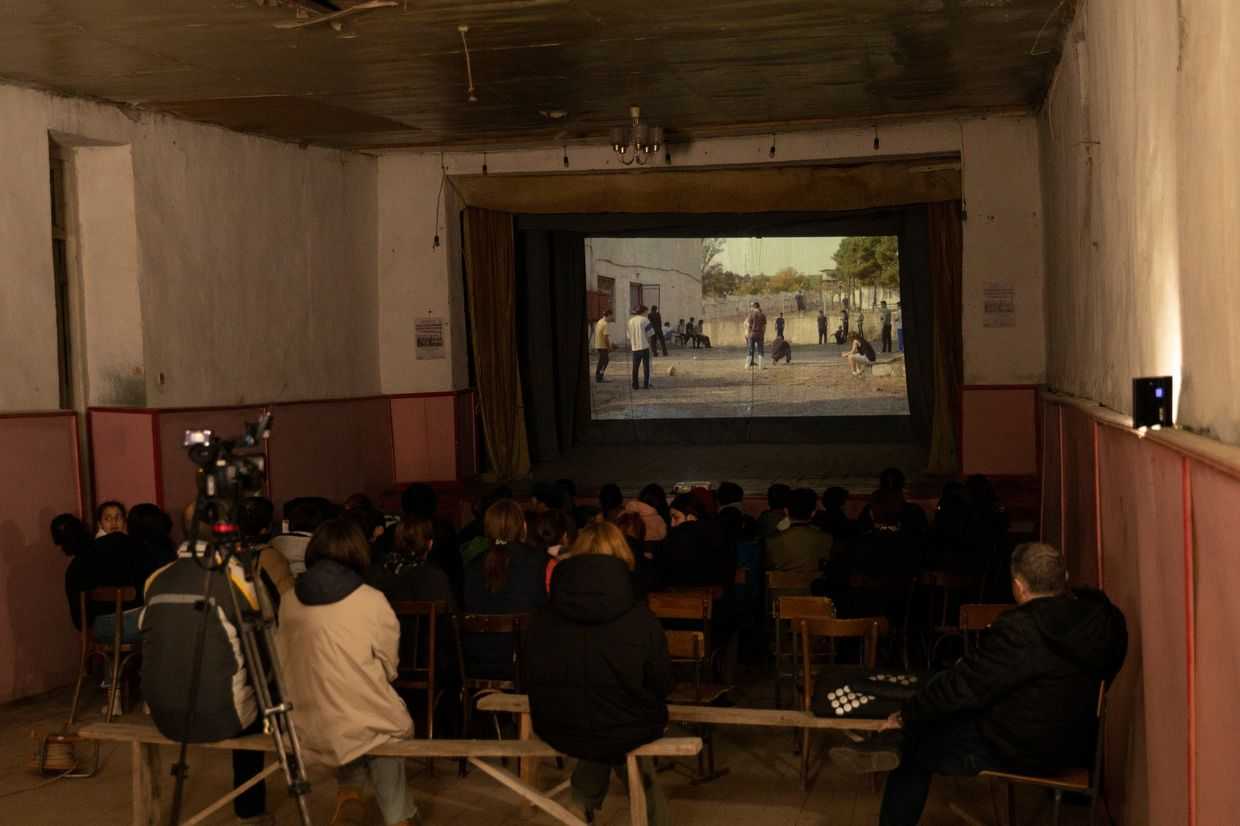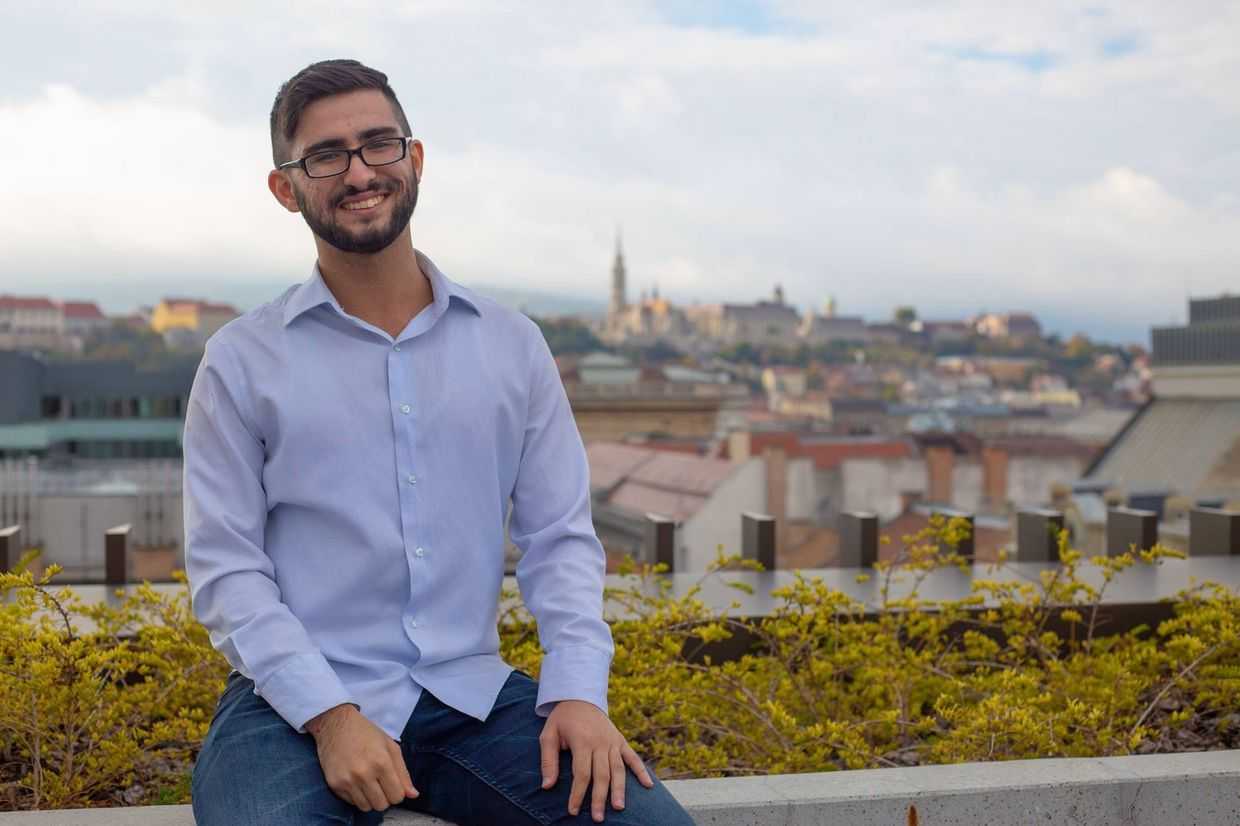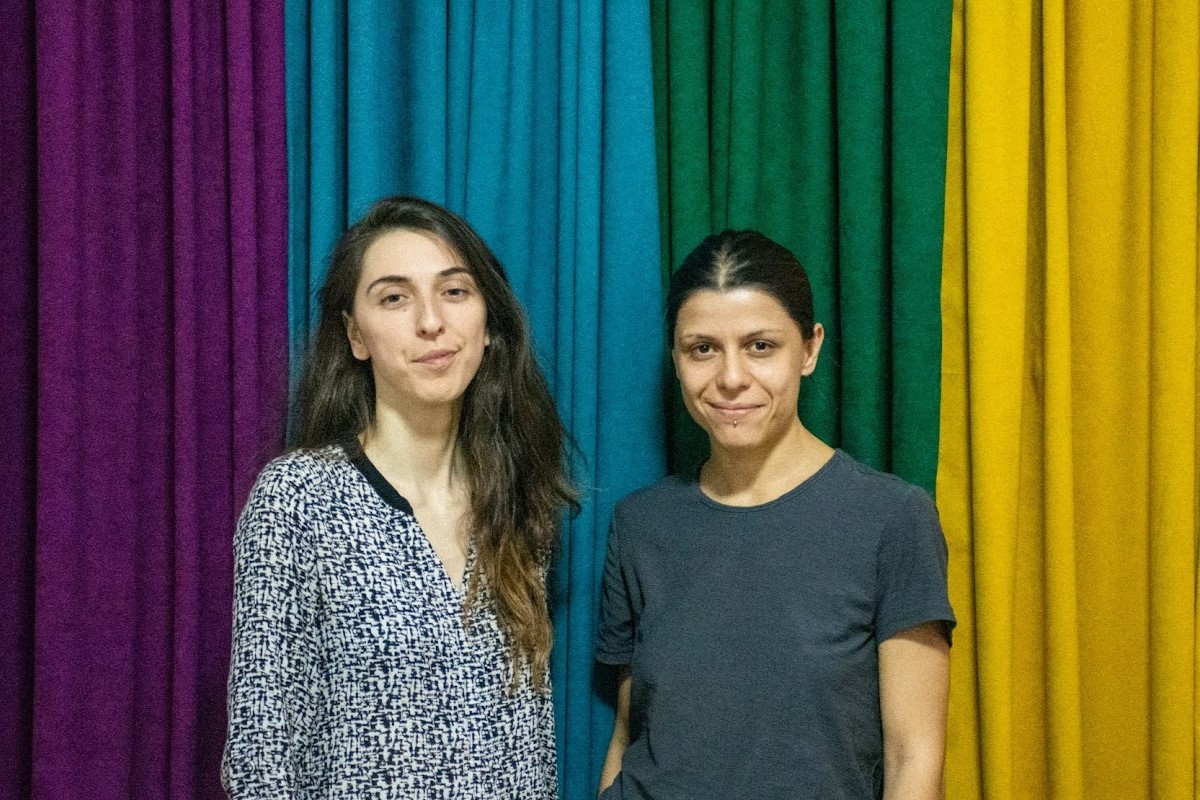
Since its inception in 2019, Tbilisi Pride has become one of the most prominent queer organisations in Georgia. Taking the helm at a time of crisis in 2021, Ana Subeliani and Mariam Kvaratskhelia are now steering the organisation through uncharted waters.
‘I have worked in queer activism for years and have always tried to help members of the community, but coming out to my mother as a lesbian was very difficult’, explains 29-year-old Mariam Kvaratskhelia, one of the directors of Tbilisi Pride.
‘She said some really terrible things to me because she is extremely homophobic, and I find it very difficult to relate to her because of this. But somehow, we agreed not to talk about this, which is not a good thing, but beyond that we have a normal relationship’.
While Mariam has often spoken publicly about her orientation, even on TV, it was only 10 months ago that she came out to her mother and brother. Mariam’s father still does not know that she is a lesbian, nor does she know when she will tell him.
Unlike Mariam, her co-director, Ana Subeliani, 32, had no problems with her family when she wrote a post on Facebook a few years ago about having a romantic relationship with a woman. Ana, who has a 12-year-old son, says she never hid the fact that she had a relationship with a woman.
‘I find it a little difficult to give an accurate answer about my orientation. Probably I’m somewhere between bisexuality and heterosexuality, although I had a variety of experiences on the level of feelings, it was not until a fairly late age that I began to expand my sexual and romantic experiences’, she says.
A history of violence
The two women have been involved in queer activism for many years and are well known locally for their work. Both cite the endless violence against queer people and the constant violations of their rights as the primary motivation for their activism.
Mariam’s first encounter with such aggression on a large scale was on 17 May 2013, when a small group of queer rights activists were attacked by an aggressive mob of thousands led be Georgian Orthodox priests. It was after this that she decided to dedicate herself entirely to protecting and empowering queer people.
‘On Freedom Square, the police and I barely managed to save one girl with brightly dyed hair from being stoned’, she says.
[Read more: 16–18 May 2013: the days of human tragedies]
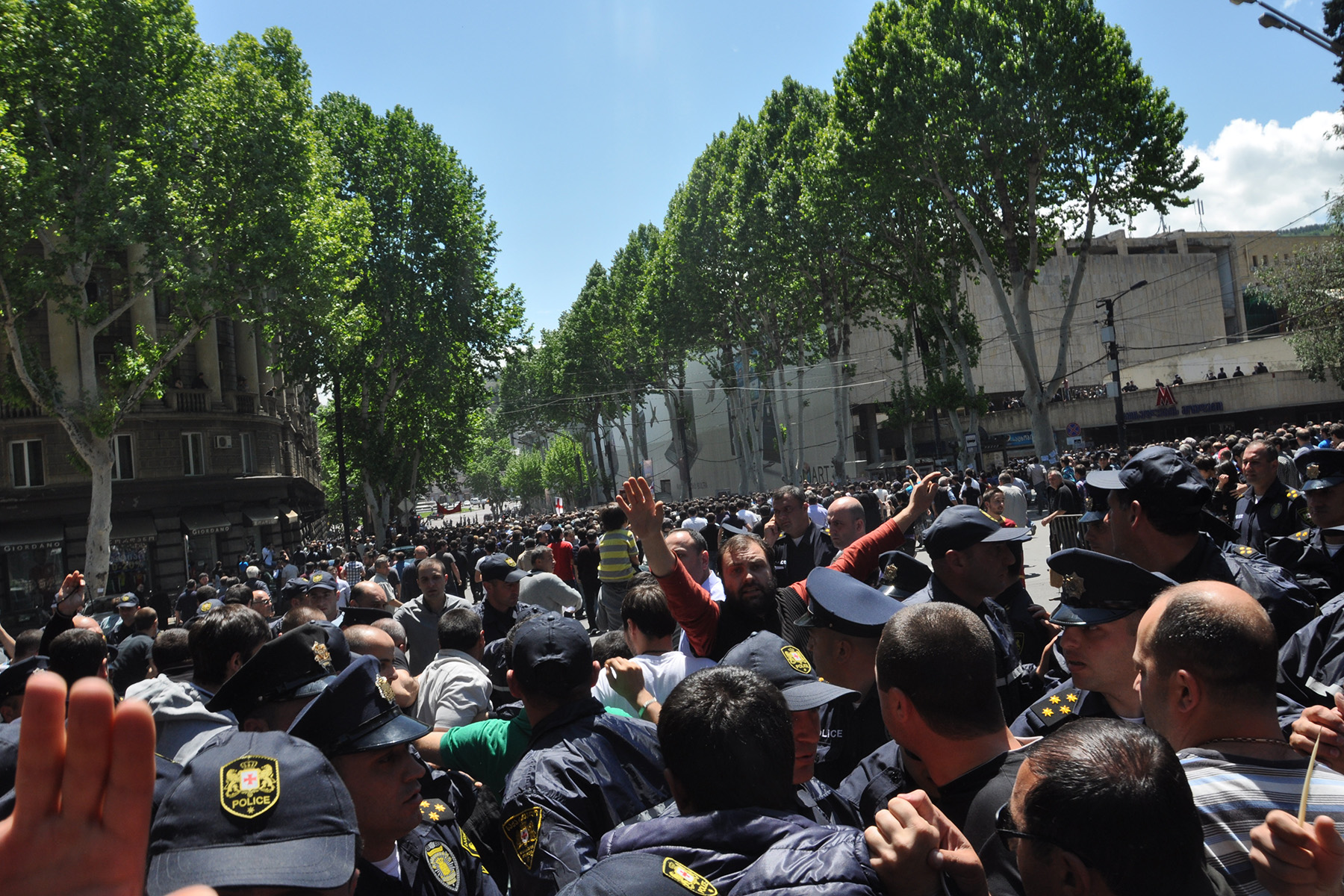
As for Ana, she was defending the rights of minorities even during school, and was previously in charge of juvenile justice reform at the Ministry of Justice, where she saw first-hand the challenges faced by queer children.
‘I encountered a number of adolescents who may or may not have been [queer], but who fell victim to homophobic bullying because of their non-conformist, non-standard appearance, values, opinions, or behaviour. It was a springboard for me, which is why I felt I wanted to get involved in LGBT activism’, she says.
Two heads are better than one
Mariam and Ana took over as leaders of Tbilisi Pride at a crucial moment for the organisation in November 2021, just months after the 5 July homophobic riots in Tbilisi.
The group had planned to hold a Pride march in the centre of the city, but the day quickly descended into chaos as far-right groups roamed the streets attacking activists and journalists as the police did little to halt the violence.
[Read on OC Media: Journalists recall day of terror in Tbilisi]
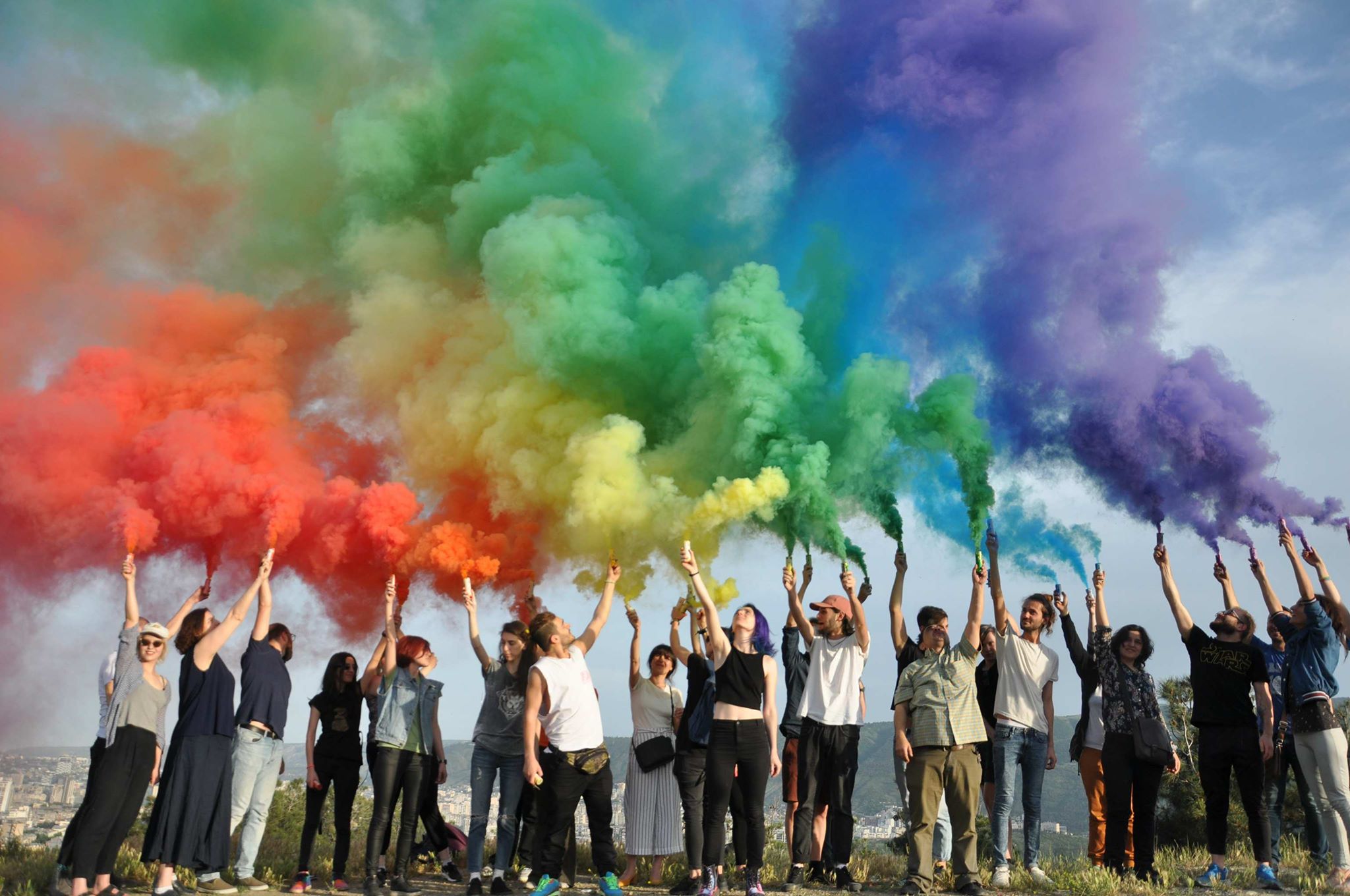
Ana explains that Giorgi Tabagari, the former director and co-founder of Tbilisi Pride, was already planning to step down before 5 July.
‘At some point, everyone runs out of resources and Giorgi had decided to leave this position, but I remember I was very nervous and I thought this change at such a critical moment could be a threat to the organisation’, she says.
‘Mariam and I started thinking about who could take this role on themselves.’
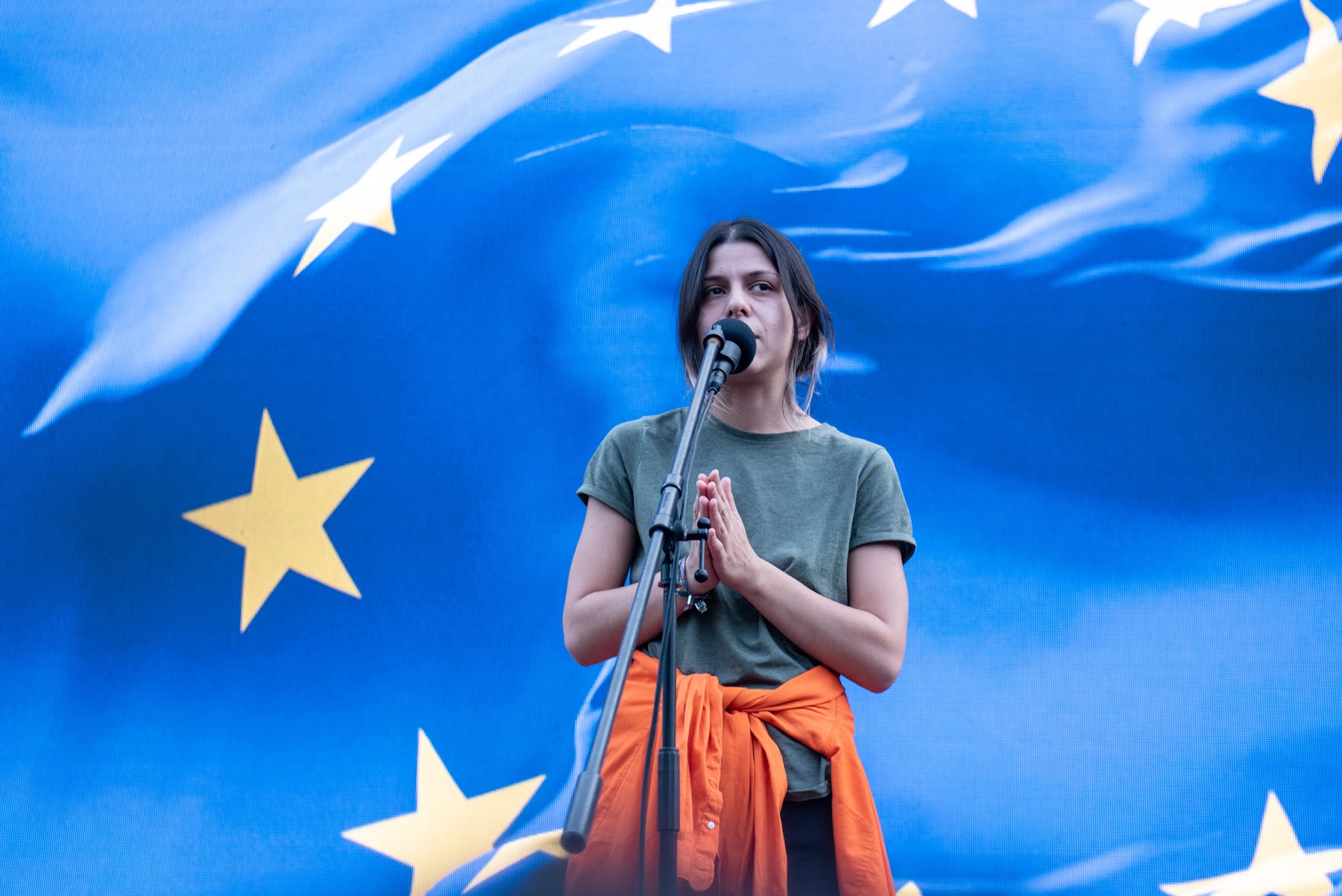
It was decided that an internal competition would be held and a new head would be selected from within the organisation. Both wanted to take up the role, leading to the idea of a co-directorship.
‘Such a model of work assumes that we have mutual accountability, support’, Ana says. ‘It turns out that we don’t even need to distribute tasks, we both naturally understand who should do what and who can do what at any moment.’
‘Everyone was expecting us to quarrel with each other soon’, says Mariam with a smile.
But after seven months as co-directors, both say the model has proven a huge success.
The question of marches
When Tbilisi Pride was founded in 2019, the group immediately announced they would hold a series of pride events, including a public march to demand ‘dignified and peaceful’ lives for queer people.
For years, queer people in Georgia have struggled to exercise their right to the freedom of assembly, being met with violence from conservative and far-right groups and indifference from the authorities.
But the issue of marching has remained controversial, even within the queer community.
During the last attempt to hold a march in 2021, Mariam was in Britain where she was studying for a year, but Ana remembers the day well.
On the morning of the march, members of Tbilisi Pride had already come to realise that going ahead with the plan could have serious consequences. As they gathered at the offices of the Shame Movement, a liberal anti-government group, they had already planned to cancel the event when the violence erupted.
What followed was a hunt for the activists by the far-right Alt Info group during which the offices of both Tbilisi Pride and the Shame Movement were sacked.
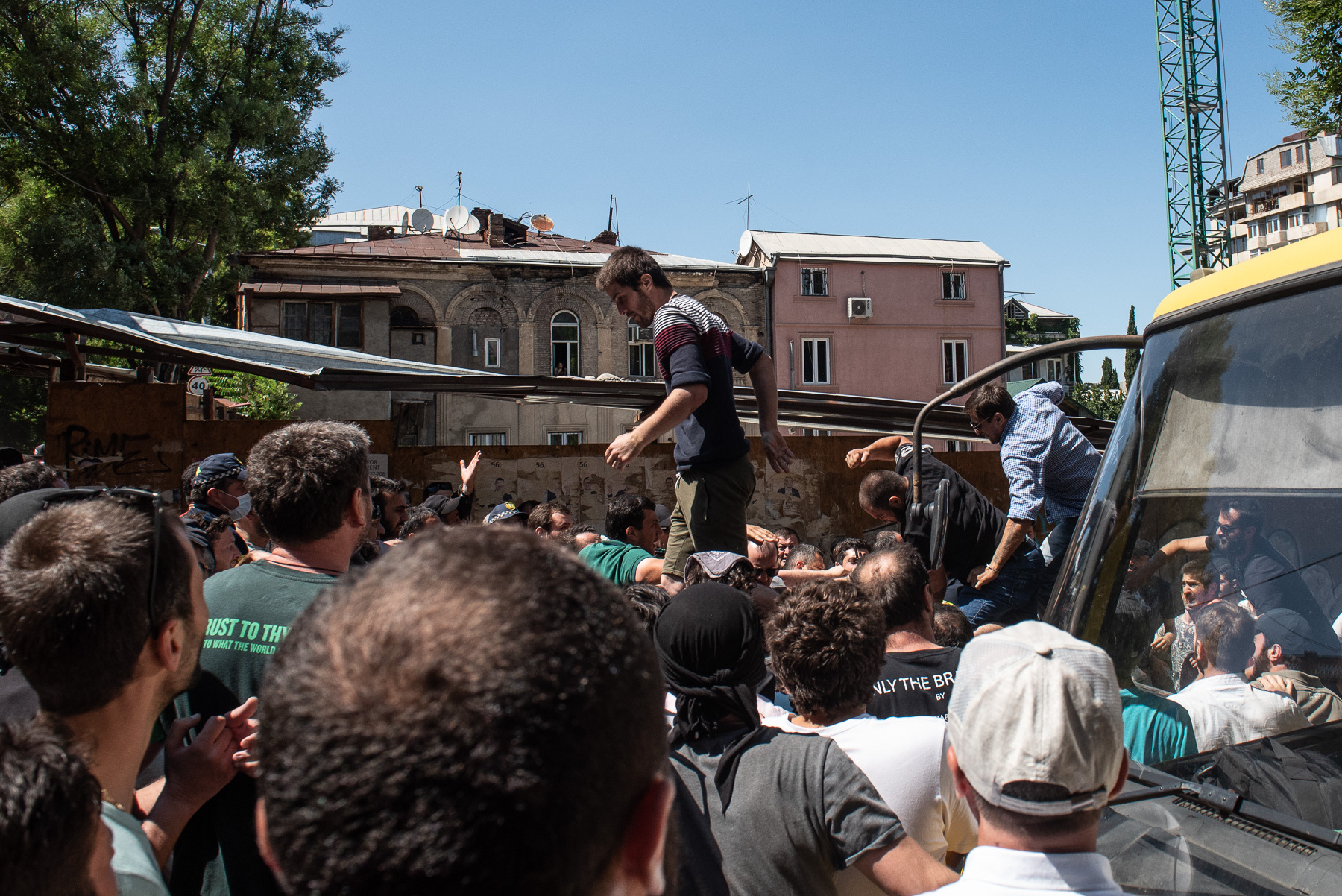
Ana says that she, her brother, and other members of the Tbilisi Pride remained just seconds ahead of the mob.
They had changed locations eight times when they fled from the Shame offices. As they hid in a residential yard, they could hear how their pursuers were trying to find them.
‘We stood there breathless and none of the people living there on whose doors we knocked opened their doors. We were in a very bad situation’, she recalls. ‘My brother and I told each other that no one in our lives was as scared as we were then’.
At the same time, other members of the mob were attacking people throughout Tbilisi.
This year, the group decided not to attempt to hold a march and to celebrate Pride week in other ways. A film screening and conference have already been held without a hitch, while the authorities have promised to protect the planned pride festival.
Ana and Mariam say that they are not ruling out future marches, but that each year a decision should be made taking into account the expected danger and risks.
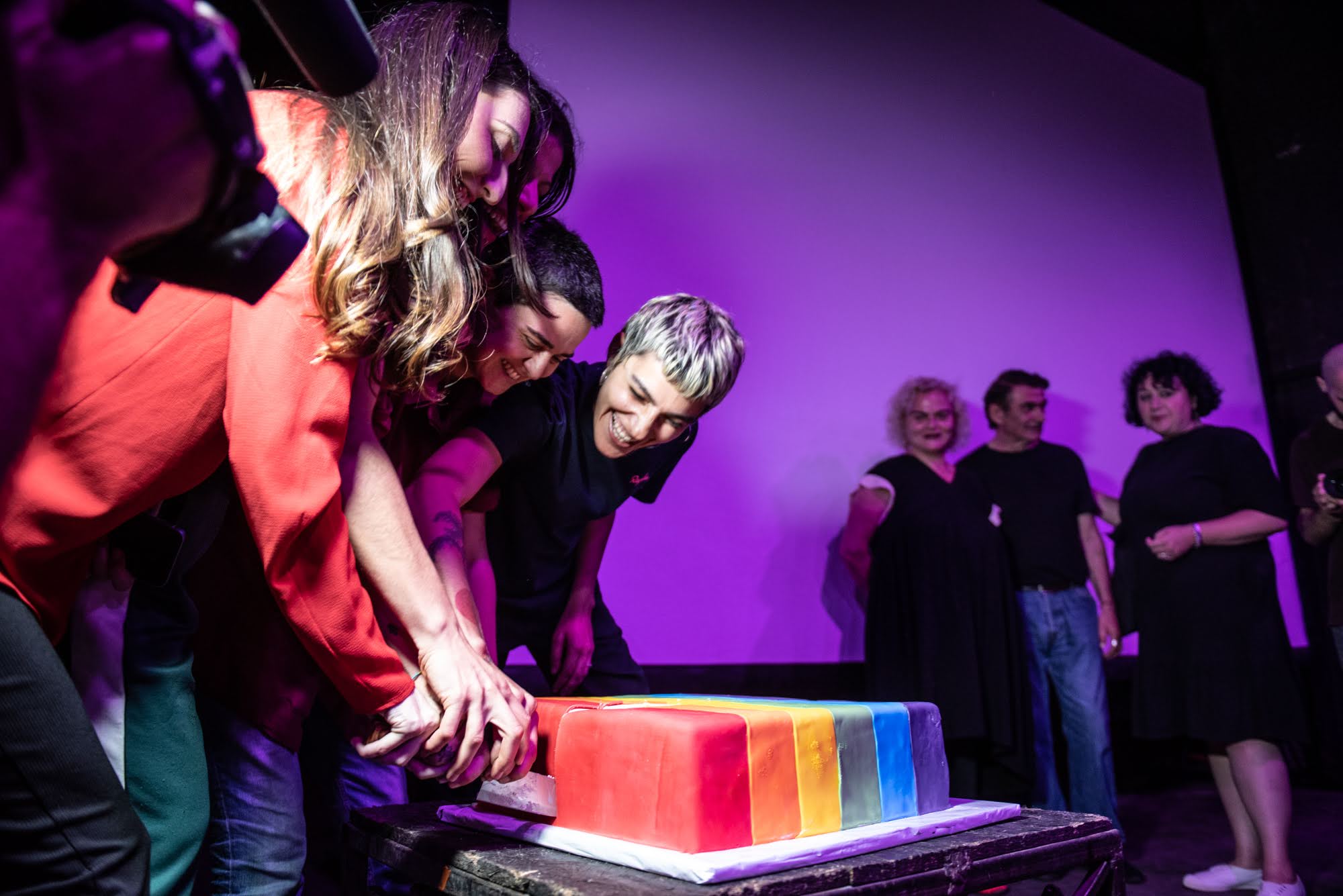
‘We have the support of the whole community that there should not be a march this year, so this year will be a festival more of healing, of mutual support, and of strengthening, where we will prepare the ground even more so that next year it will be possible to be fully represented in public’, Mariam says.
Expanding and empowering the community
The two co-directors say that a lot is changing now in Tbilisi Pride, with more and more people joining the organisation. Formally they have 180 members, but the two say that there are more like 500 activists and volunteers now taking part.
‘Often, there is a public impression that there are these five schemers [in Tbilisi Pride], radical activists, who are doing everything’, Mariam says, adding that their numbers show that this is not true. ‘There is quite a large part of the community behind us’, she says.
One of the main directions of their work now is to empower queer people, working directly with members of their families, political parties, and other queer organisations, including in regions.
The biggest challenge they now face, they say, is the widespread fear among queer people of just being themselves.
To address this, Mariam says they hope to show examples to the public, to queer people who are afraid, that ‘if you are queer it doesn’t mean you can’t be strong; that you should suffer your whole life’.
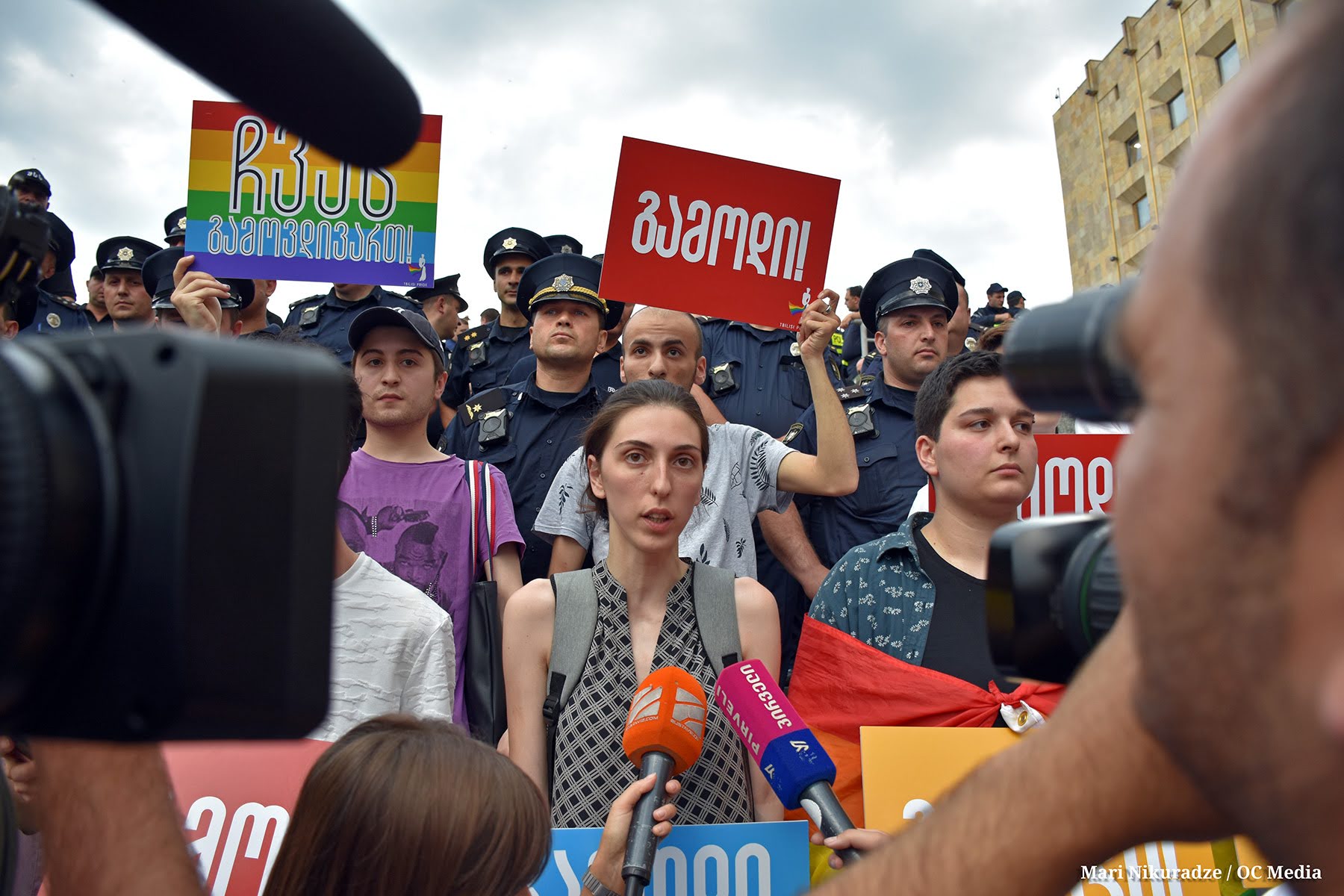
‘It’s not easy to come out, to overhaul your personal life, experiences, traumas, family relationships, but I think it’s very important’, Mariam says. ‘Young people, teenagers, queer people, they can understand and see that people can talk about this openly, that we are not just oppressed and miserable people.’
Mariam draws on her own journey of understanding and accepting her sexuality.
‘I was 13 or 14 years old when I experienced feelings and attraction towards someone of my own gender. But it was so unbelievable, unacceptable, and taboo, that I buried this in my head’, she recalls.
‘Then at the age of 20 or 21, I met one girl who I liked very much. I remember feeling so weird, I could not understand what was happening to me.’
‘When I took this girl [home] and took care of this person, I thought to myself: “am I a man?!”. I had not even thought about any of this until then, I had it all locked in my mind, — then I slowly realised everything’.
This is why Mariam thinks that it is so important for her to provide a real-life example of someone ‘more or less empowered and successful and who can talk about this openly’.
‘This can give a lot of hope and motivation to people. They see that it’s possible to accept yourself, to love, not to be ashamed, and not to suffer’.




